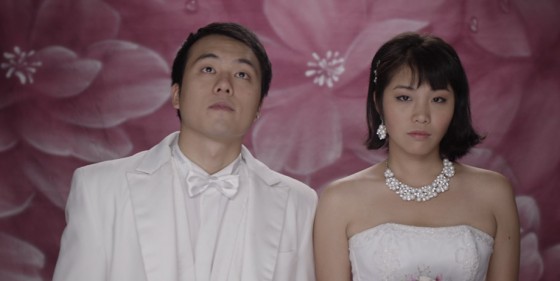TIFF 2014 | La Salada (Juan Martín Hsu, Argentina) — Discovery
By Diego Brodersen
The debut feature by Juan Martín Hsu (the son of Chinese parents, but born in Buenos Aires) has the virtue of being nice and sincere, almost the exact opposite of what one would expect when reading the catalogue synopsis. A story of Korean, Bolivian and Taiwanese immigrants in Argentina, La Salada avoids the most sordid and dark edges that other filmmakers would die to include in this kind of film and consciously proposes itself as a multi-character portrait that is bittersweet yet hopeful. Hsu intertwines three different stories that sometimes converge and, at other times, run in parallel. The first one introduces a young Korean-Argentinian adolescent and her father, Mr. Kim, a “typical Korean-Korean”—in other words, a traditional and taciturn man, obsessed with ideas of order and purity in every order of existence, but especially when it comes to his daughter’s life, which doesn’t seem to be extremely happy with the prospect of marrying a young boy from the community.
Very close to Mr. Kim’s shops at the famous La Salada market in the outskirts of Buenos Aires lives another immigrant, Huang, who burns DVDs of pirated movies in a tiny room when he’s not making phone calls to his mother in Taiwan; fragile, sad and melancholic, he seems like a perfect mix between a Tsai Ming-liang and a Wong Kar-wai character. There are also two newcomers to La Salada, a Bolivian man and his nephew, both in search of work and new perspectives. Classic and direct in both style and content, La Salada suffers from some narrative problems, and there are a few clichéd commentaries here and there. It’s no groundbreaking stuff, but its subtle approach to costumbrismo (that dirty word!) never falls into pretentiousness or affectation. A fine, if not perfect, crowd-pleaser, as they used to call them.
Diego Brodersen


